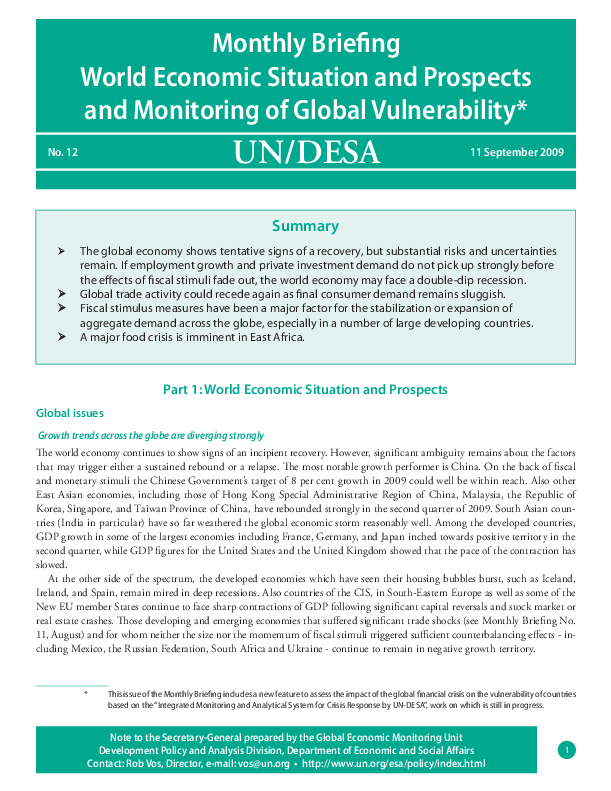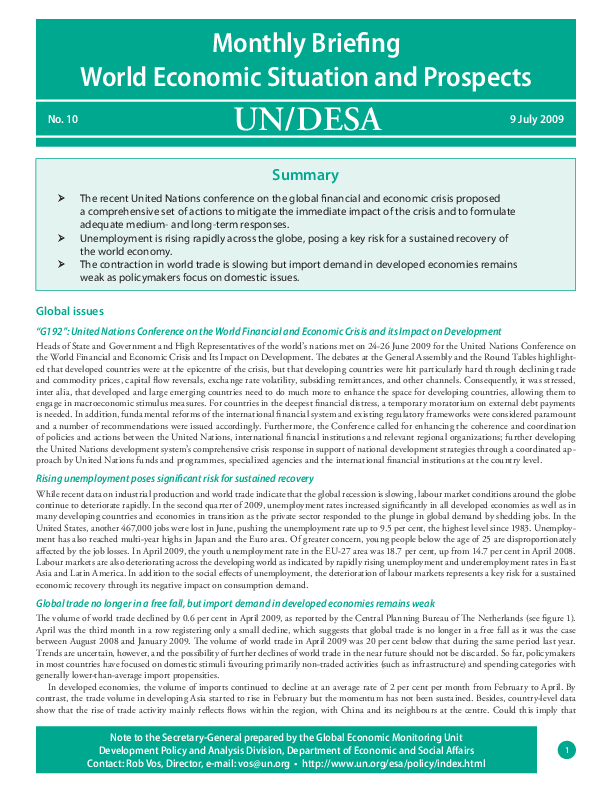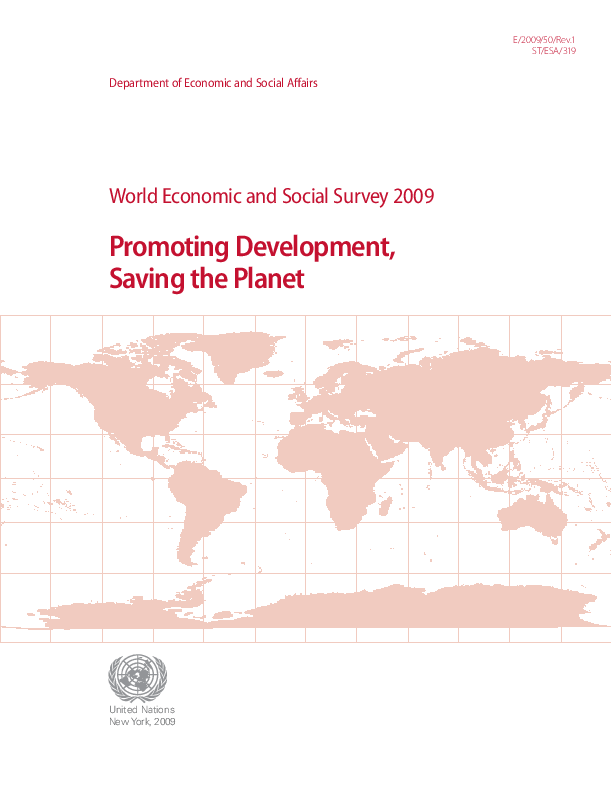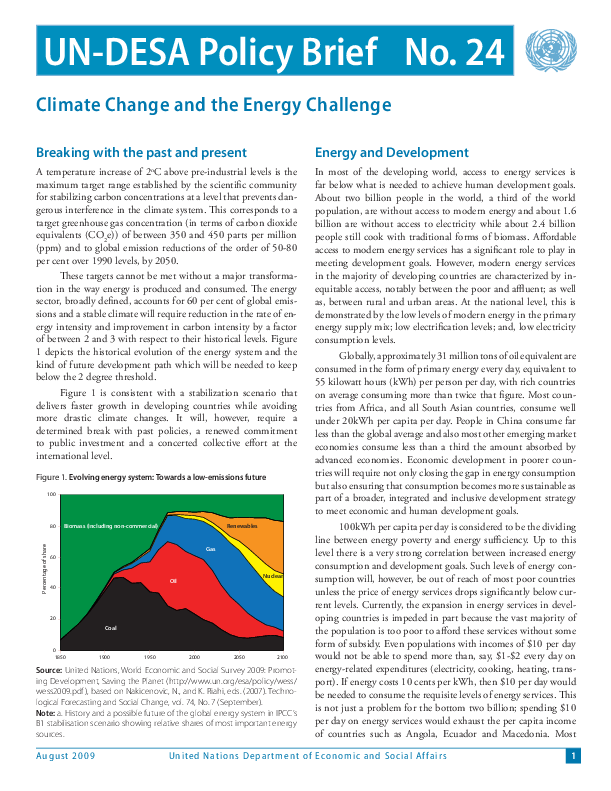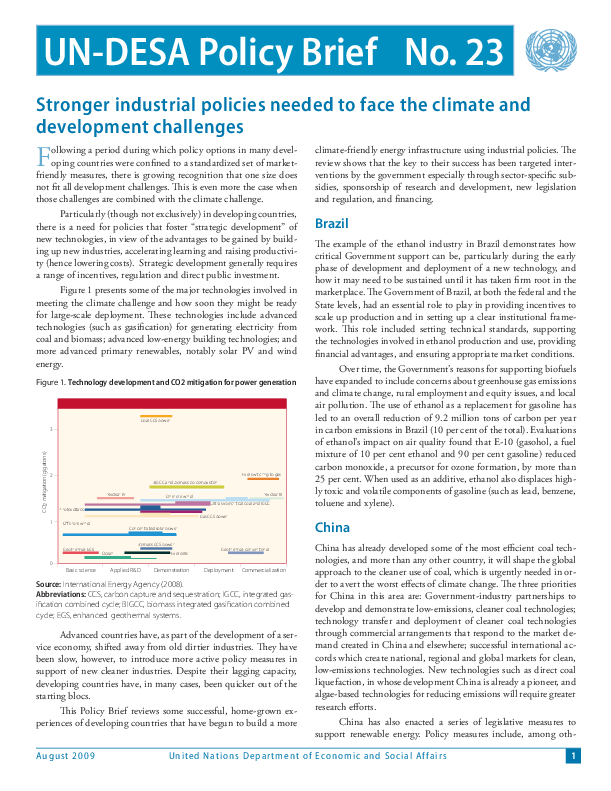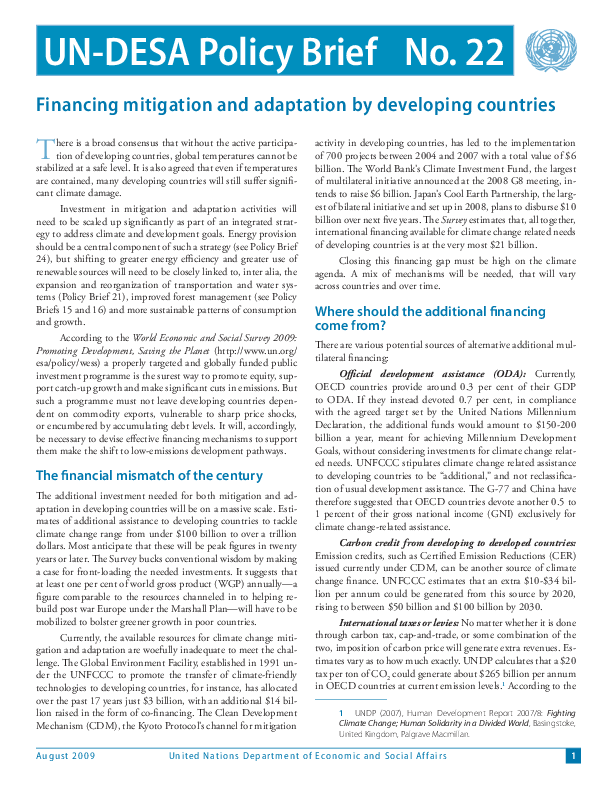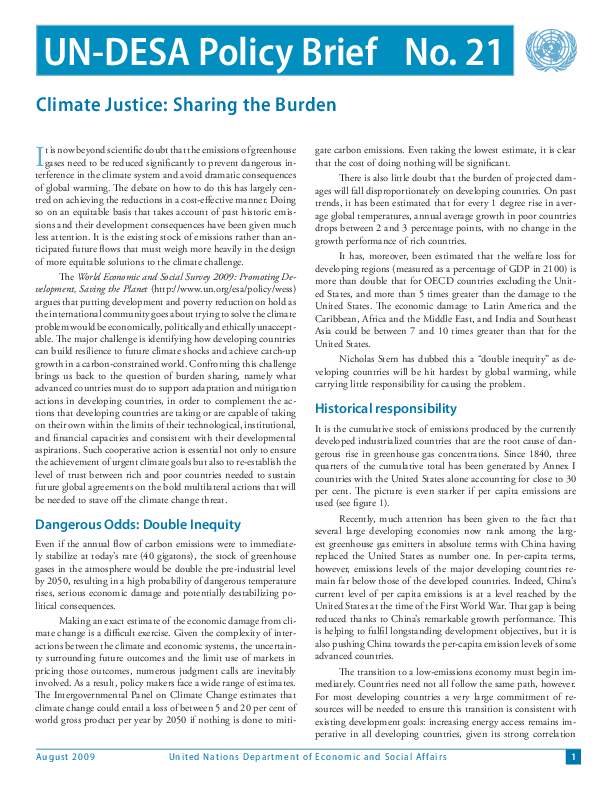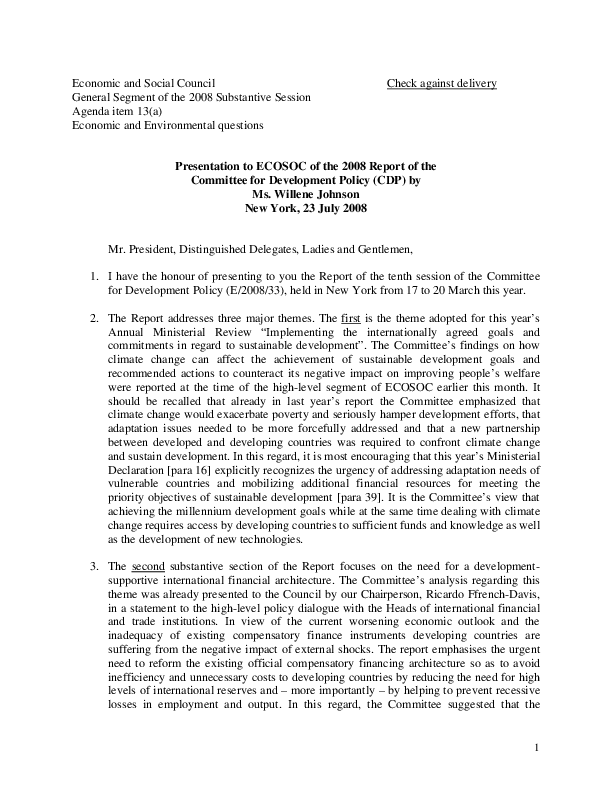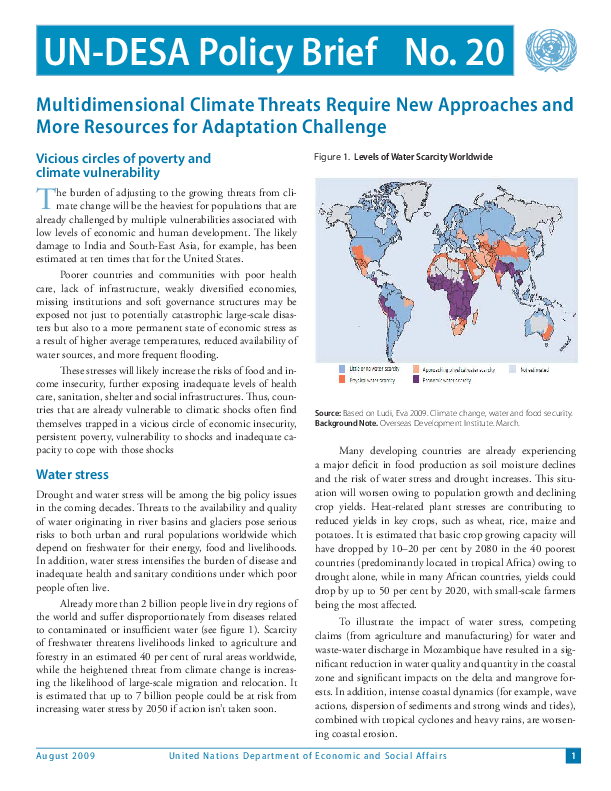Publications
Displaying 11 - 20 of 44
Summary:? The global economy shows tentative signs of a recovery, but substantial risks and uncertainties?remain. If employment growth and private investment demand do not pick up strongly before?the effects
Summary: The recent United Nations conference on the global financial and economic crisis proposed a comprehensive set of actions to mitigate the immediate impact of the crisis and to formulate adequate medium- an
The
by Imran Ahmad, Tariq Banuri, Richard Kozul-Wright?and Rob Vos
by Richard Kozul-Wright, Mariangela Parra and Rob Vos
?
by?Nazrul Islam, Richard Kozul-Wright and Rob Vos
by?Imran Ahmad, Richard Kozul-Wright and Rob Vos
Summary:? The global recession is moderating, with trade and industrial production stabilizing and financial markets partially improving
The prospects of a true global recovery are highly uncertain as d
by?Alex Julca, Richard Kozul-Wright and Rob Vos
?
 Welcome to the United Nations
Welcome to the United Nations
